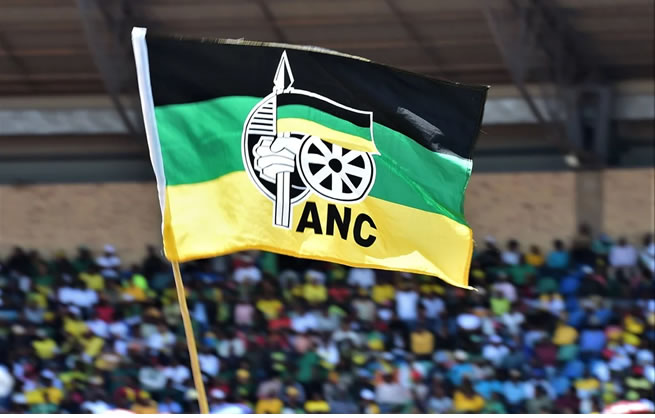The African National Congress (ANC) is grappling with serious internal challenges, as a recent document revealed that corrupt elements within the party may be holding its leadership structures “hostage.” This admission emerged during the party’s national executive committee (NEC) meeting held in Boksburg, Ekurhuleni, over the weekend.
The document, which was circulated among NEC members, painted a stark picture of a party at war with itself, lamenting its failure to address corruption effectively. It highlighted the need for the ANC to act on the findings of the Judicial Commission of Inquiry into Allegations of State Capture, which implicated over 200 ANC officials. Many of these officials have challenged the commission's report, opting for judicial reviews instead of taking accountability.
“The state investigative units and prosecutorial authorities appear to be weakened and affected by factional battles and unable to perform their functions effectively,” the document stated, underscoring the detrimental impact of internal conflicts on government institutions.
Despite the ANC's ongoing rhetoric around renewal and integrity, several high-ranking officials remain entangled in numerous allegations related to crimes committed in public office. The document suggested that the party's current leadership is either unable to act against these corrupt leaders or is itself compromised by their influence.
“The corruption robs our people of billions that could be used for their benefit. At times we do things that are not according to the ANC or government policy, or that are not legal or constitutional, and wait for court to correct our acts,” it read.
Factionalism and Electoral Consequences
Factionalism and dishonesty within the ANC have been identified as significant contributors to the party's poor electoral performance. For the first time in South Africa’s democratic history, the ANC received only 40% of the votes in the recent national elections, compelling it to form a government of national unity with ten other political parties. Some NEC members suggested that these internal issues played a crucial role in this unprecedented outcome.
“These practices contradict and damage our mission to serve the people and use the country’s resources to achieve development and transformation,” the document stated, further emphasising the negative impact of corruption on the ANC’s mission.
The NEC's discussions are expected to include a report from the party's integrity commission, which has been actively working to hold accountable those implicated in wrongdoing. Among those under scrutiny are Thembi Simelane, who has faced questions regarding a questionable loan from a broker to the now-defunct VBS Bank, as well as former ministers Malusi Gigaba, David Mahlobo, and Cedric Frolick.
Cutting Ties with Corruption
The document also expressed concern over the difficulty many ANC leaders face in severing ties with individuals accused of corruption. It stated, “We are concerned about our association with, and the closeness of our leaders to, businesspeople facing allegations of corruption. The ANC is endangered to the point of losing credibility in society and power in government.”
To combat this, the ANC recommended that its officials publicly disassociate themselves from anyone implicated in corruption, including business donors and supporters. It urged all ANC members and structures to cooperate fully with law enforcement agencies to ensure that anyone guilty of corruption is prosecuted.
“All ANC members and structures should cooperate with law enforcement agencies to criminally prosecute anyone guilty of corruption,” the document insisted, signalling a strong stance against corruption.
Strengthening Law Enforcement
The NEC also stressed the importance of enhancing the state’s capacity to investigate and prosecute corruption effectively. The document noted that cooperation among investigators, forensic experts, and prosecutors has been inconsistent, leading to some cases being lost due to poorly constructed dockets and inadequate court presentations.
Current staffing levels within the police force were highlighted as insufficient for the country’s population, with the ratio of police officers to citizens standing at 1:350. The ANC called for this ratio to be improved to 1:150 to bolster law enforcement capabilities.
The document acknowledged that, like many other African nations, South Africa continues to face significant national security threats, particularly in the realm of common crime.
Damage to the ANC's Image
The NEC also noted that the ANC’s perceived lack of integrity has seriously damaged its reputation, diminishing its ability to occupy a moral high ground within society. The party’s trust among the populace has waned, with many citizens questioning its commitment to serving the public good.
As the ANC grapples with these pressing issues, it is clear that internal unity and a renewed commitment to integrity are crucial for restoring public confidence. The ongoing discussions within the NEC may shape the party’s future direction and its ability to combat corruption effectively.
The ANC now faces a critical juncture, as it must decide how to navigate the allegations of corruption within its ranks while striving to regain the trust of the South African people. The outcomes of these discussions will be closely watched, not only by party members but also by the broader public, who are eager for meaningful change and accountability.

Follow Us on Twitter











